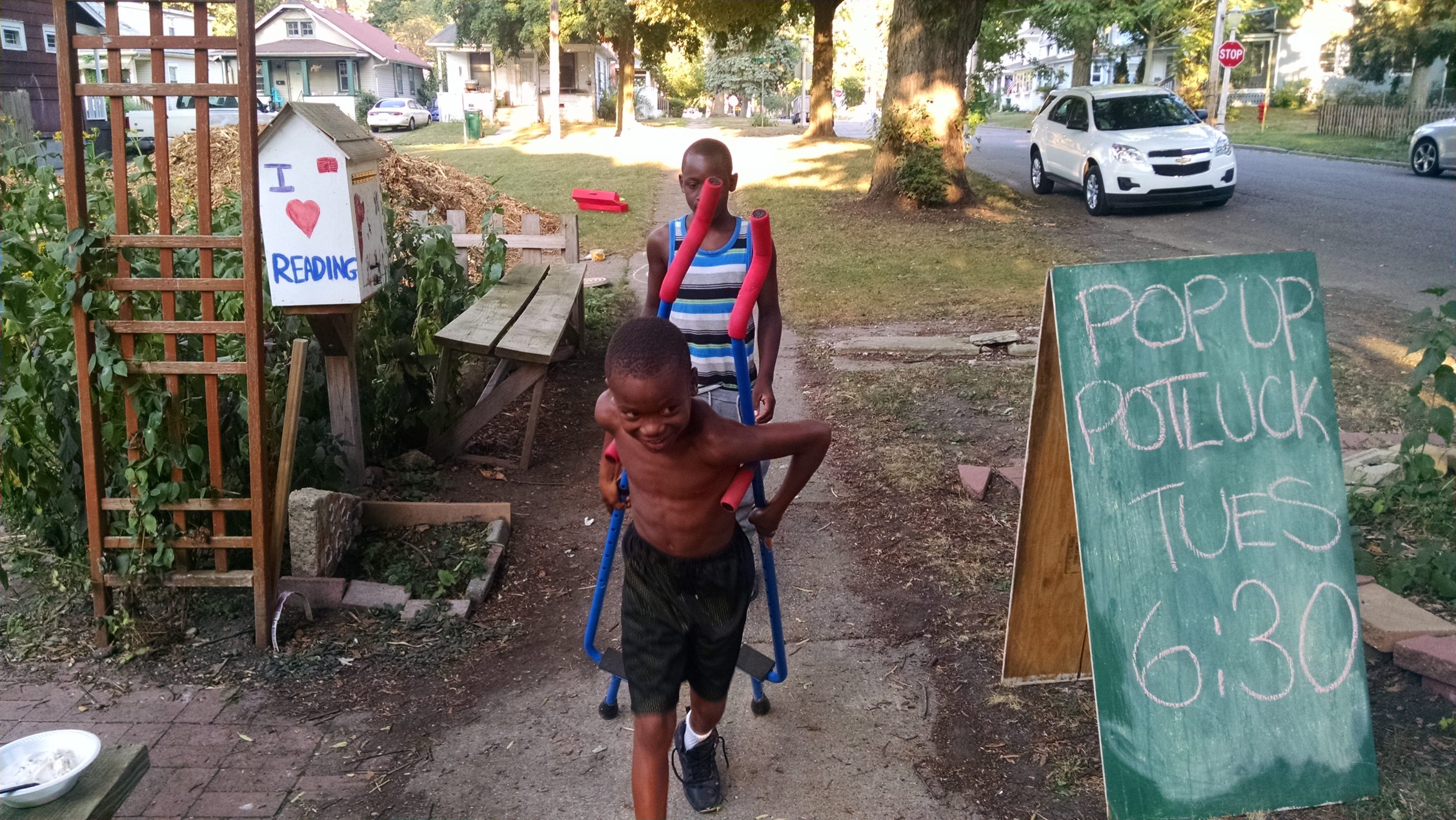Topic(s): Creative Placemaking, Vacant Land Stewardship
Problem to Purpose: The Drug Activity Answer for One Lansing Neighborhood, Get Creative
April 21, 2020

Photo Credit: Prospect P.L.A.C.E. Neighbors
Empty lots are open opportunities – for safety threats or community innovation.
Pegasus Garden, located in the Prospect PLACE neighborhood in Lansing, Michigan, is a great example of what happens when communities choose option two.
Jennifer Grau, a Prospect PLACE neighborhood resident, said the garden was created out of a need to find a use for a vacant lot that drew illegal activity to the community.
“A house was demolished, creating a vacant lot,” said Grau. “Drug activity was believed to be taking place across the street from this location. Neighbors wanted to create a colorful space for gathering and gardening that would signal to those who live here and those passing by that we live in a connected, vibrant, and caring community.”
Pegasus Garden features a free book library, a tool shed where neighbors can borrow tools, and serves as a communal space for campfires, potlucks, campfires, neighborhood meetings, and free community concerts.
Most importantly, the garden grows and provides fresh produce for the neighborhood, and even introduces raised beds to accommodate neighbors in wheelchairs who want to help garden.
“…Our garden is unique in that it is communal; there are no individual plots. Anyone can plant, weed, water and/or share in the harvest…The Pegasus Garden has become a bright and colorful community asset.”
Need Ideas for a Community Creative Placemaking Project?
Download the “Trends in Creative Placemaking on Problem Properties: 2019 National Survey Findings” for data and real case studies of communities, like Oakland, where residents are solving community challenges while fighting vacancy.
For more inspiration and innovation’s in creative placemaking, follow Community Progress on Facebook, Twitter, Instagram, and LinkedIn.
Subscribe to join 14,000 community development leaders getting the latest resources from top experts on vacant property revitalization.
